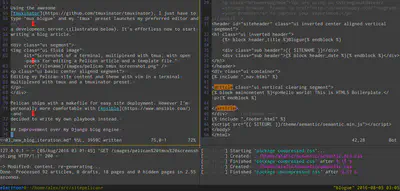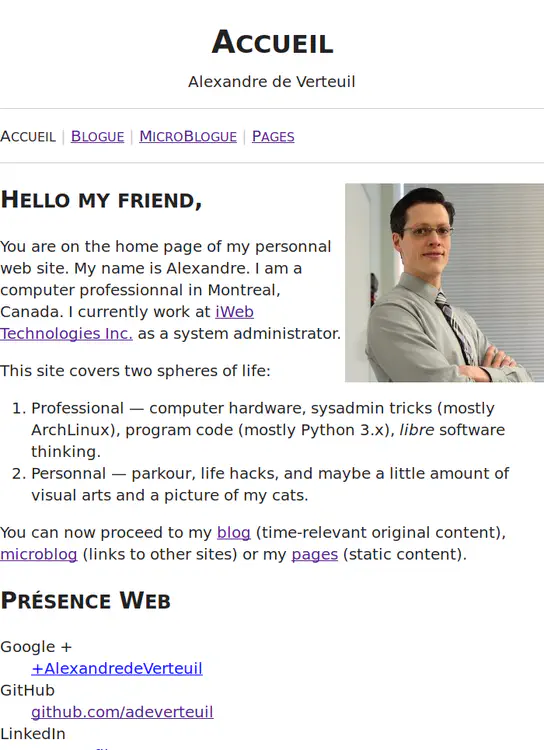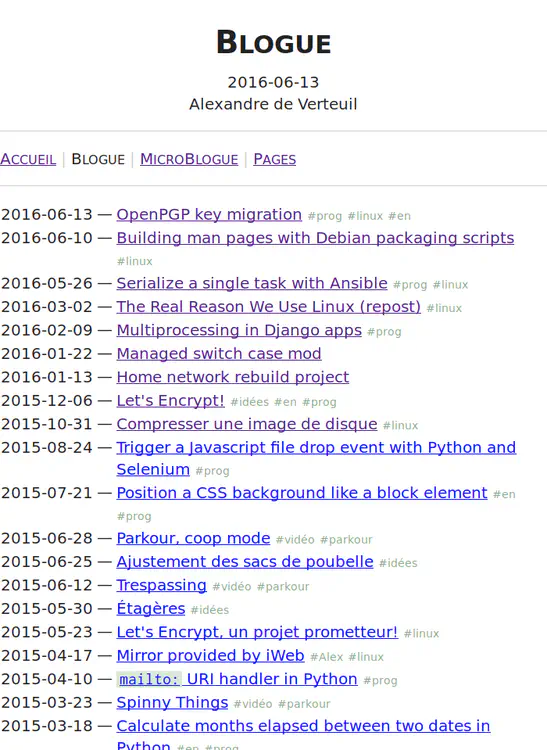New blog iteration
Intro
My last iteration was back in September 2014 when I moved away from Pelican and decided to code my own blog engine based on Django. I really liked the idea of a static site, but I found using Pelican was a bit tedious and I didn’t like the theme. That was two years ago. Pelican has evolved a lot, and so have my skills in coding, theming and system administration.
Addressing Pelican’s drawbacks that discouraged me two years ago
Obviously the theme has been taken care of. I used Semantic UI’s default theme and wrote my the Pelican templates. It’s not a complete Pelican theme, I only wrote the features I actually use.
The main usability drawback I had with Pelican was having to generate the site at each edit, which took as long as 30 seconds because I had many large videos which needed to be copied to the output directory. So I wrote a new feature to create hard links instead of copies, which reduces the processing time to about 2 seconds.
Using the awesome
tmuxinator, I just have to
type mux blogue and my tmux preset launches my preferred editor and
a development server (illustrated below). It’s effortless now to start
writing a blog article.

Pelican ships with a makefile for easy site deployment. However I’m personally more comfortable with Ansible and decided to write my own playbook instead.
Improvement over my Django blog engine
I am relieved that I don’t have to maintain my code alone anymore. Not that it was a complicated and rotten code, but I don’t have the time since I shifted my focus towards system administration. Now I have an entire open source community to help me!
Writing articles is much faster and fun using Markdown. My blog didn’t have that and I wrote all my articles in pure html…
My old blog’s theme was just normalize.css plus some CSS written by
hand. Now that I have Semantic, I can write some html in my Markdown
files if I need to for articles requiring special formatting.
Hosting got cheaper again. NearlyFreeSpeech.net didn’t support Django and I moved to a Linode 10$/month VPS. Linode worked great, but a VPS is overkill for such a small blog.
Inspirations
- The pelican-bootstrap3 theme
cat /dev/brain

